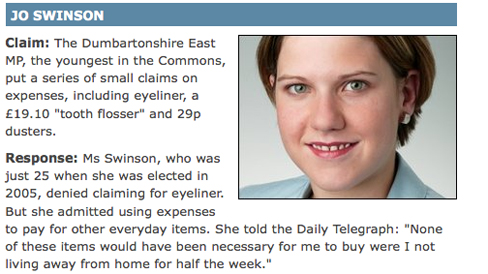Oddly, it looks like the BBC and Politics.co.uk are the only two news organisations to report on Greg Dyke’s appearance at the Liberal Democrat party conference, where the former BBC director-general claimed that the BBC is part of a ‘conspiracy’ preventing the necessary ‘radical changes’ to UK democracy.
[Update: The Belfast Telegraph and The Herald in Glasgow also reported some of his comments – please do send over any other sightings]
Dyke – who was director-general from 2000-2004, before resigning after the verdict of the Hutton Report – made the comments on Sunday at a fringe meeting about MPs’ expenses at the Liberal Democrat party conference.
Dyke said a commission should examine the ‘whole political system,’ but added: “I fear it will never happen because I fear the political class will stop it.”
Major changes he had wanted to make to the BBC’s coverage of politics had been blocked, Dyke claimed. Some of his comments, as reported by the BBC:
“The evidence that our democracy is failing is overwhelming and yet those with the biggest interest in sustaining the current system – the Westminster village, the media and particularly the political parties, including this one – are the groups most in denial about what is really happening to our democracy.”
(…)
“I tried and failed to get the problem properly discussed when I was at the BBC and I was stopped, interestingly, by a combination of the politicos on the board of governors, one of whom was married to the man who claimed for cleaning his moat, the cabinet interestingly – the Labour cabinet – who decided to have a meeting, only about what we were trying to discuss, and the political journalists at the BBC.
“Why? Because, collectively, they are all part of the problem. They are part of one Westminster conspiracy. They don’t want anything to change. It’s not in their interests.”
Politics.co.uk reported a slightly different angle: Dyke also claimed that politicians damaged by the expenses scandal should not be allowed to conduct financial scrutiny of the BBC or other public bodies. Dyke said:
“When I was director-general of the BBC I regularly appeared before select committees and had often quite I thought quite dumb people coming and giving me tough questions.
“How can those people question you now? How can someone who’s flipped their mortgage possibly sit there and start asking me about expenditure at the BBC? Because you just come back to them. I think some people are completely undermined by this. They should go because they can’t do the job.”
- BBC News: Dyke in BBC ‘conspiracy’ claim.
- Politics.co.uk: Dyke: Expenses scandal undermines BBC scrutiny
A blog search picks up a little more mention of the comments and this video interview with Greg Dyke by Mark Thompson (Lib Dem ‘Mark Reckons’ blogger, not the current BBC D-G):






